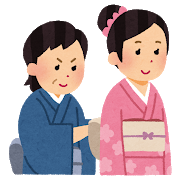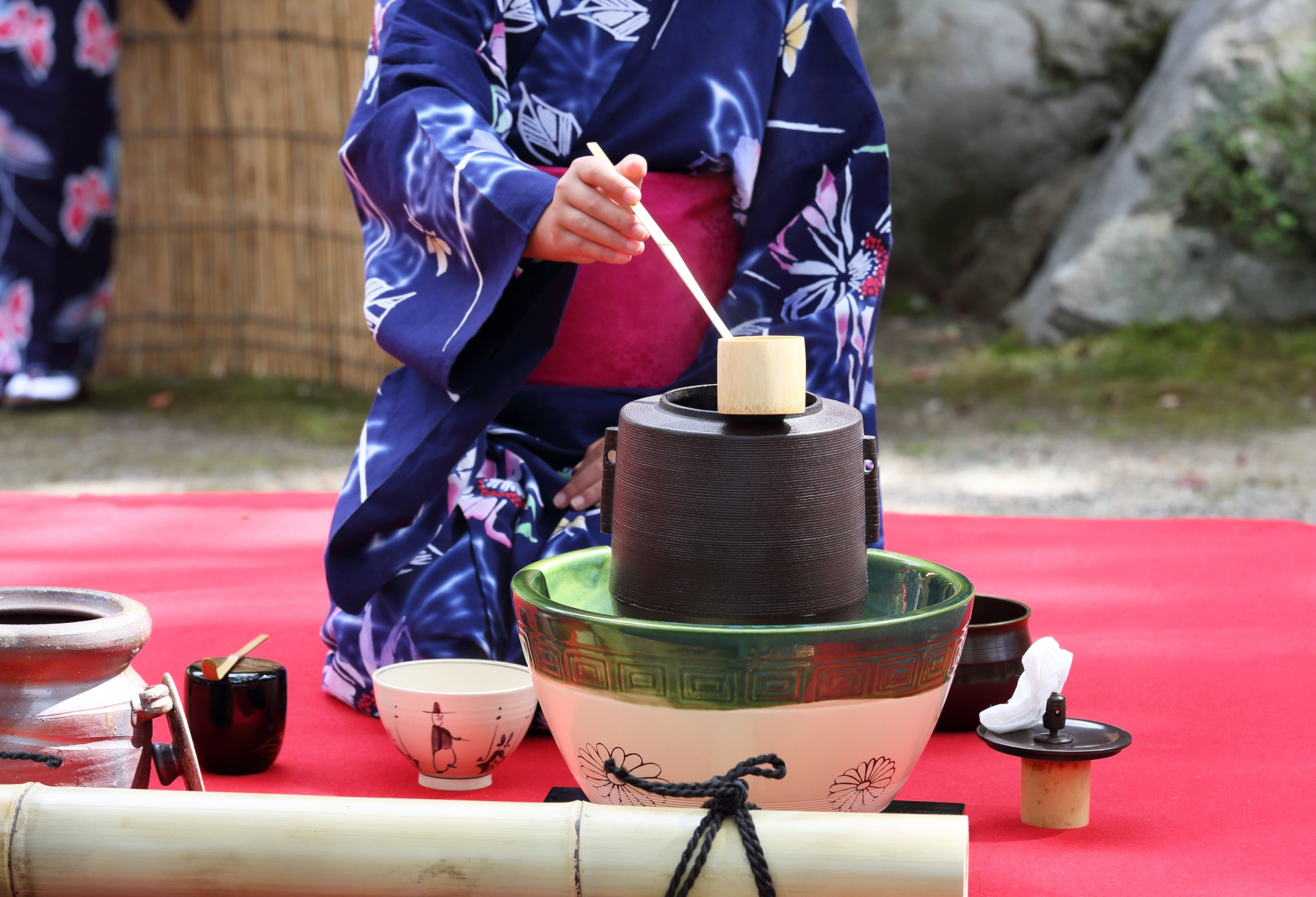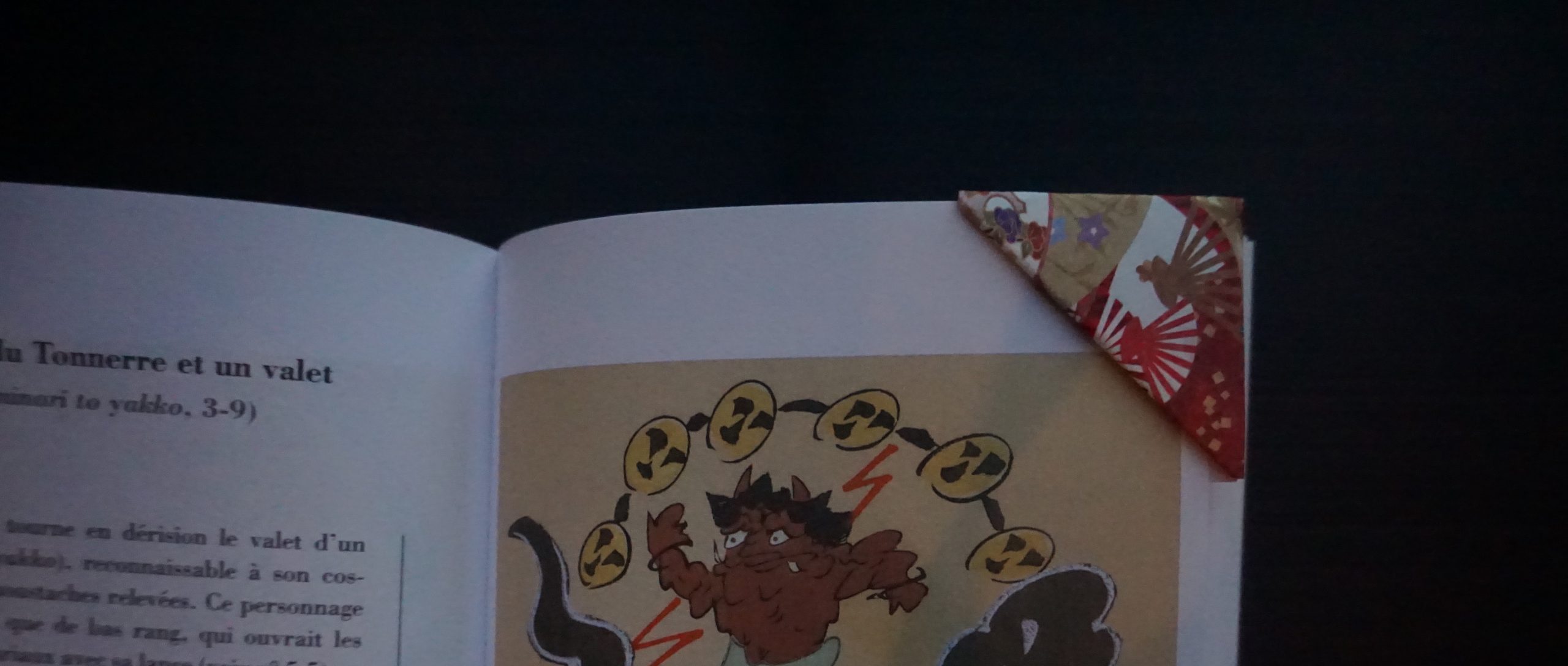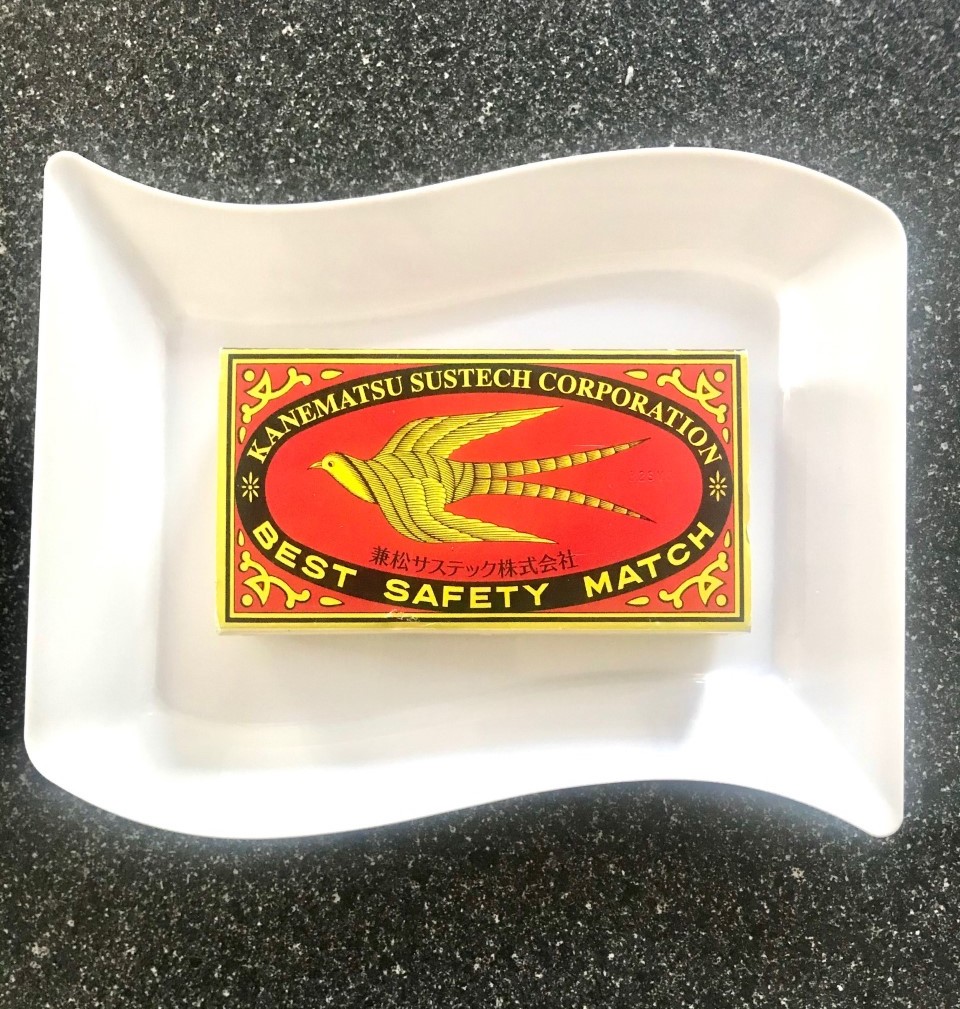
和文は英文の下にあります。/ The Japanese text is on the bottom of this page.
“Hitori de” and “jibun de” are equally translated as “by oneself” in English.
Do they always mean the same thing? If not, how are they different?
You can use them interchangeably in many situations. However, there are a few cases for which one works better than the other since they have slightly different implications.
In this post, we will give you loads of examples. We hope you will get the feeling after reading this!
Table of Contents
- “Hitori de” = a wider meaning of “alone”, “not with others” or “not helped by others”
- “Jibun de” = “able to do something without having it done by others such as professional service”
- When are “hitoride” and “jibunde” interchangeable?
- For your free time: Exercise and answer key (1-7)
- For your free time: Exercise and answer key (8-14)
- Summary of “hiitoride” and “jibunde”
- 和訳 / Japanese translation
*****************************
1. “Hitori de” = a wider meaning of “alone”, “not with others” or “not helped by others”
(1) “Hitori de” basically means “alone”.
Example: Hitori de bijutsukan e ikimashita. (I went to the art museum by myself.)
(2) “Hitori de” also means “without help from others”.
Example: Hitori de omoi nimotsu o hakobimashita. (I carried heavy luggage by myself.)
(3) “Hitori de” sometimes shows a sad situation, where you feel “no one is with me” or “there is no help from anyone”.
Example: Hitori de o-shoogatsu o sugoshimashita. (I spent the New Year’s Day by myself.)
Considering (1) (2) and (3), “hitori de” has a very broad meaning and it sometimes contains the meaning of “jibun de”. So, when you don’t know which one to use for “by myself”, just use “hitori de”.
2. “Jibunde” = “able to do something without having it done by others such as professional service”
(1) There are certain things we often ask professional service or someone’s help who does a better job than us. For example, plumbing. When we do these things by ourselves, we use “jibun de”.
Example: I repaired my computer by myself.
(2) In relation to (1), it has a “positive” connotation because it shows your ability to do it.
3. When are “hitori de” and “jibun de” interchangeable?
There are many situations in which you can use “hitori de” and “jibun de” interchangeably.
In some cases, sentences with “hitori de” and “jibun de” are slightly different in nuance. In other cases, they mean exactly the same.
As for the latter cases, their meanings are identical when (A) you can do something without help, AND (B) when the action is essentially never done by someone else for you such as “uchi e kaeru (go home)”, “gohan o taberu (eat a meal)”.
Example: Hitori de o-te-arai ni ikeru ? = Jibun de o-te aria ni ikeru? (Can you go to the bathroom by yourself?)
4. For your free time: Exercise and answer key (1-7)
Here are some English sentences with “by oneself”. Which would you say, “hitori de” or “jibun de”, if you were to say these in Japanese? And why?
In some cases, either will do. For these, discuss whether there is any difference in the nuances. If yes, how are they different?
Now, pick up a piece of paper, take notes on our explanations given hitherto, and try!
Exercise 1. I travelled in Tibet by myself.
>Answer: “Hitori de”
>Translation: Hitori de Chibetto o ryokoo shimashita.
>Note: We don’t use “jibun de” for this sentence. If we did, it would sound as if we could have someone travel for us for vacation and therefore sound awkward.

Exercise 2. The man had to get out of the desert by himself.
> Answer: Either is fine.
>Translation: Sono otoko wa hitori de (or jibun de) sabaku o nukedasanakereba narimasendeshita.
Exercise 3. At school, I had lunch by myself.
>Answer: “Hitori de”
>Translation: Gakko de hitori de hiru-gohan o tabemashita.
>Note: We don’t use “jibun de” here since he/she is not with their friends and they don’t have another person eat lunch for them.
However, if you are sick or injured, you have someone such as your brother or a nurse feed you. In this situation, when you ate by yourself with a lot of efforts with no one around to help you, you can use “jibun de” as well as “hitori de”. Rather, “jibun de” may be even better as it demonstrates your ability rather than your solitude.
Exercise 4. I finished a big bag of potato chips by myself.
>Answer: “Hitori de”
>Translation: Poteto chippu no ookina fukuro o hitori de zenbu tabete shimaimashita.
>Note: We don’t say “jibun de” here since there is not anyone else we have eat potato chips for us.
Exercise 5. [A parent is talking to their child] (We are not going to pick you up today, OK?) You are old enough to walk home by yourself.
>Answer: Either is fine.
>Translation: Moo ookii-n-dakara, hitori de (or jibun de) kaette korareru deshoo!
Exercise 6.I like to read by myself during my lunch time.
>Answer: “Hitori de”
>Translation: Hiru-yasumi wa, hitori de hon o yomu no ga suki desu.
>Note: We don’t say “jibun de” in this situation since there is no possibility of having another person read for us.
Exercise 7. I weeded in the neighborhood park by myself.
>Situation: Usually my family and neighbors do it with me, but this time nobody showed up because everyone had forgotten the schedule.
>Answer: “Hitori de”
>Translation: Hitori de kinjo no kooen no kusa-mushiri o shimashita.
>Note: We don’t say “jibun de” here. If we did, it would imply “I did what others or a professional landscaper habitually did or should have done”.
5. For your free time: Exercise and answer key (8-14)
Exercise 8. Liquor made by oneself is called Moonshine in the southeast US.
>Answer: “Hitori de”
>Translation: Beekoku nantoobu dewa, jibun de tsukutta o-sake o Muunshain to iimasu.
>Note: In this case, “jibun de” means “not by a winery or a brewery”.
We don’t use “hitori-de” here since it would mean differently. “Hitori de” originally means “by one person”, so “hitori de tsukutta o-sake o Muunshain to iimasu” sounds like you should not call liquor Moonshine if it’s made by a group of people.

Exercise 9.Since three years ago, I have arranged air tickets and hotels by myself.
>Situation: I used to have a travel agent make arrangements for me. Three years ago, I found that I could book flights and hotels on the computer at home and I no longer use the agent.
>Answer: “Jibun de”
>Translation: San-nen mae kara, kookuuken ya hoteru o jibun de tehai-shite imasu.
>Note: You can replace this “jibun de” with “hitori de”.
To be precise, however, “jibun de” in this sentence means “not using the service of an agent or the help of my parent, etc.”
On the other hand, “hitori de” can mean the same, AND can also mean “until three years ago I was doing it with my friend or family, but now I am doing it alone.”
Exercise 10.This is a sweater that I knitted by myself.

>Answer: “Jibun de”
>Translation: Kore wa, watashi ga jibun de tsukutta seetaa desu.
>Note: It’s easily understood if you say “hitori de” instead of “jibun de”.
To be precise, however, there is a difference in nuance. “Jibun de” in this sentence means “not buying the work of a professional knitter” and “I made it”.
On the other hand, “hitori de” here can mean the same as above, AND can have this strong meaning: “Until now I always had a knitting class teacher or someone always help me or usually I have a teacher or someone help me, but this time I made it without any help.”
Exercise 11. I don’t take out Indian dishes. I can cook it by myself.
>Answer: “Jibun de”
>Translation: Watashi wa Indo-ryoori no teiku-auto wa shimasen. Jibun de tsukuremasu kara.
>Note: You can say “hitori de” instead of “jibun de”.
If there is a difference between the two, “jibun de dekimasu” sounds better since there is an accent on your ability.
On the other hand, “hitori de dekimasu” sounds more neutral and just describes the fact that you can cook without help from others.
Exercise 12. It’s difficult to cut my hair by myself.
>Answer: Either is fine.
Translation: Jibun de (or hitori de) kami o kiru no wa muzukashii.
Note: A possible difference in nuance in this case: “Jibun de kiru no wa muzukashii” says the speaker personally feels it’s almost impossible for him/her to cut his/her hair without the service of a barber, a hair stylist or a friend (even if the friend may not charge you).
On the other hand, “hitori de kiru no wa muzukashii” sounds more objective: Generally, it is difficult to cut your own hair without help and/or advice from others.
Exercise 13. I can tie my shoelace by myself!
Answer: Either is fine.
>Translation: “(Kutsu no himo,) jibun de (or hitori de) musuberu yo!”
>Note: “Usually mom or my teacher helps or does it for me, but actually I can do it without their help!” is what he/she wants to say.
Exercise 14. I am not able to put my kimono on by myself.

Answer: Either is fine.
>Translation: Kimono o jibun de (or hitori de) kiru koto ga dekimasen.
Having said that, to be precise, they actually have slightly different meanings:
>Note: Generally, dressing oneself should be done alone. However, the Japanese kimono is a little complicated and you usually can’t get dressed unless you practice many times after learning from someone, in a book or on the Internet. There are a lot of Japanese who have a professional dresser dress them at a hair salon.
“Jibun de kiru koto ga dekimasen” means you have to have someone dress you entirely while “hitori de kiru koto ga dekimasen” can mean you need someone’s help at least on one part, for example, the obi in the back, etc., in addition to the meaning of “jibun de”.
6. Summary on “hitoride” and “jibunde”
As a summary, in finding which is better,
(1) You can generally use “hitori de” when you do something ALONE, or when you do something WITHOUT SOMEONE’S HELPING HAND
(2) “Jibun de” sounds natural and positive in a situation where you CAN do something (which can naturally be done by someone else) WITHOUT HAVING OTHERS DO it for you.
(3) If you are not sure, use “hitori de”.
Thank you for reading!
[End of the English post]
「ひとりで」と「自分で」はどう違う?
英語ではどちらもby oneselfと訳される「ひとりで」と「自分で」。
意味は常に同じでしょうか。違うなら、どう違うのでしょうか?
多くの場合、どちらも使えます。でも、少し意味合いが違うので、どちらかを使
この投稿では例をたくさん出します。読んで、感じをつかんでいただきたいと思います。
目 次
- 「ひとりで」=「人と一緒でなく」やる。または「手伝ってもらわず」やる
- 「自分で」=「他の人にやってもらわなくてもできる」感じ
- 「ひとりで」と「じぶんで」、どちらでも構わない場合とは?
- 暇があれば:使い分け練習問題と答え(1〜7)
- 暇があれば:使い分け練習問題と答え(8〜14)
- 「ひとりで」と「じぶんで」のまとめ
*****************************
1. 「ひとりで」=「人と一緒でなく」やる。「手伝ってもらわず」やる
(1)「ひとりで」は、基本的に「単独で」という意味です。
例: ひとりで美術館へ行きました。
(2)「ひとりで」はまた、「ほかの人に手伝ってもらわずに」という意味があります。
例: ひとりで重い荷物を運びました。

(3)「ひとりで」は、「誰も一緒にいない」とか「誰の助けも得られない」などのかなしい状況を示すこともあります。
例: ひとりでお正月を過ごしました。
(1)(2)(3)を考えると、「ひとりで」はとても意味が広く、「自分で」の意味合いを含むこともあります。ですから、迷ったら「ひとりで」を使いましょう。
2. 「自分で」=「他の人にやってもらわなくてもできる」感じ
(1)ある種のこと、例えば鉛管工事などは、自分よりうまくできる人にやってもらうことがしばしばあります。そのようなことを、人に頼まずにやる時に「自分で」を使います。
例: コンピューターを自分で直しました。
(2)上に関連して、「自分で」には、やる能力があるということで「ポジティブな」語感があります。
3.「ひとりで」と「自分で」、どちらでも構わない場合とは?
「ひとりで」「自分で」どちらを使ってもよい状況はたくさんあります。
これには、①「ひとりで」を使った文と「自分で」を使った文でニュアンスが違うけれど、文脈から考えてどちらも使える場合と、②二つの文の意味が完全に重なる場合があります。
②の「ひとりで」と「自分で」の意味が完全に重なるのは、(A)「家へ帰る」「ご飯を食べる」のように、もともと「人にやってもらう」ことがない個人的な動作や行動が話題になっており、かつ(B)それを「人の助けを借りずに」できる、時です。
例: ひとりでお手洗いに行ける?=自分でお手洗いに行ける?
4. 暇のある時に: 使い分け練習問題と答え (1〜7)
さて、練習問題です。by oneselfという表現の入った英文をいくつか出します。「ひとりで」と「自分で」のどちらがよいでしょうか。そして、なぜでしょうか。
どちらでもよい場合もあります。その時は、ニュアンスが違うかを考えてください。もし違うなら、どのように違うでしょうか。
それでは、紙にこれまで述べた説明をメモして、やってみてください!
問1. I travelled in Tibet by myself.
>答え: 「ひとりで」
>訳: ひとりでチベットを旅行しました。
>注: この文には「自分で」を使わない。使うと、他の人に休暇旅行をしてもらうこともできたようで不自然。
問2. The man had to get out of the desert by himself.
>答え:「ひとりで」と「自分で」
>訳: その男はひとりで砂漠を抜け出さなければなりませんでした。
問3. At school, I had lunch by myself.
>答え: 「ひとりで」
訳: 学校で、ひとりで昼ごはんを食べました。
>注: この状況では「自分で」は使わない。友達と一緒でなかったことが中心だから。また、お昼を食べることは、他人に代わってしてもらうことではない。
ただし、病気やけがのためにふだん家族や看護師に食べさせてもらっている状況では別。この場合は、食事の時誰もおらず、それでもがんばって食べたなら、「ひとりで」「自分」どちらも使える。「一人でいた」ことよりも「助けなしに食べる能力」が表せるので、「自分」の方がむしろ適切とも言える。

問4. I finished a big bag of potato chips by myself.
>答え: 「ひとりで」
>訳: ポテトチップの大きな袋をひとりで全部食べてしまいました。
>注: この状況では、「自分で」は使わない。ポテトチップを食べることは他人に代わってしてもらうことではないため。
問5. [A parent is talking to their child] (We are not going to pick you up today, OK?) You are old enough to walk home by yourself.
>答え: どちらでもよい
>訳: (今日は迎えに行かないよ。)もう大きいんだから、ひとりで(or 自分で)歩いて帰ってこられるでしょう。
問6. I like to read by myself during my lunch time.

Reading by myself / ひとりで本(ほん)を読(よ)む
>答え: 「ひとりで」
>訳: 昼休みは、ひとりで本を読むのが好きです。
>注: この状況では「自分で」は使わない。本を読むことは人に代わってしてもらうことではないため。
問7. I weeded in the neighborhood park by myself.
>状況: いつもは家族や隣人と一緒にするのだが、今回はみんな予定を忘れてしまって、誰も来なかった。
>答え: 「ひとりで」
>訳: ひとりで近所の公園の草むしりをしました。
>注: ここでは「自分で」と言わない。「自分で」を使うと、意味が少し変わる。「いつも業者やほかの人がしていること、あるいは業者や他の人がすべきだったことを私がした」という意味合いになる。
5.暇のある時に: 使い分け練習問題と答え (8〜14)
問8. Liquor made by oneself is called Moonshine in the southeast US.
>答え:「自分で」
>訳: 米国南東部では、自分で作ったお酒をムーンシャインといいます。
>注: この場合は、「自分で」は「酒造家や醸造所でなく」という意味。
ここで「ひとりで」を使うと意味が変わってしまう。「ひとりで」は、もともと「ひとりの人間で」という意味なので、複数の人々が作ったお酒はムーンシャインと呼ばないように聞こえるため。
問9. Since three years ago, I have arranged air tickets and hotels by myself.
>答え:「自分で」
>訳: 三年前から、航空券やホテルを自分で手配しています。
>注: 「自分で」の代わりに「ひとりで」と言ってもよい。
正確には、この「自分で」は「代理店や親などにやってもらわないで」という意味。
一方、「ひとりで」は、「自分で」の場合と同じ意味にもなるし、それとは別に「三年前までは友だちか家族と一緒にやっていたが、今は私だけでやっている」という意味にもなりうる。
問10. This is a sweater that I knitted by myself.
>答え:「自分で」
>訳: これは、私が自分で作ったセーターです。
>注: 「自分で」の代わりに「ひとりで」と言ってもよい。
正確には、「自分で」は、「プロの編み物家?の作品を買わなかった」「編んだのは私」という意味。
一方「ひとりで編んだセーターです」と言うと、上と同じ意味にもなるが、それとは別に、「これまで、あるいはいつもは編み物教室の先生か誰かに手伝ってもらっていたけれど、今回はそうしなかった」という意味にもなる。
問11. I don’t take out Indian dishes. I can cook it by myself.
>答え:「自分で」
>訳: 私はインド料理のテイククアウトはしません。自分で作れますから。
>注: 「ひとりで」と言い換えてもよい。
違いがあるとすれば、「自分でできます」は自分の能力に重きがおかれるので、よりポジティブな感じがある。
一方、「ひとりで料理できます」は、人の手助けなしに作れるという状態を中立的に述べた感じ。
問12. It’s difficult to cut my hair by myself.
>答え: どちらでもよい
>訳: 自分で(or ひとりで)髪を切るのは難しい。
>注: 違いがあるとすれば、「自分で切るのは難しい」は、床屋さんやヘアスタイリスト、友人などにやってもらわずに自分の髪を切る個人的な自信が話者にはないということです。
一方、「ひとりで切るのは難しい」は、より客観的な言い方で、一般的に他の人の手助けやアドバイスを受けずに切ることが難しいということです。
問13. I can tie my shoelace by myself!
>答え: どちらでもよい
>訳: (靴の紐、)自分で(or ひとりで)結べるよ!
>注: 「いつもはお母さんや幼稚園の先生が手伝ったり、やってくれたりするけど、そうしなくてもできる」と言いたいので、どちらも同じ意味。
問14. I am not able to put my kimono on by myself.
>答え: どちらでもよい
>訳: 着物を自分で(or ひとりで)着ることができません。
>注: 本来、服を着ることはひとりですることですが、和服は少し複雑で、誰かに習ったり、本やインターネットで調べたりして何度も練習しないとひとりで着ることはまずできません。美容院に行ってプロの着付け師さんに着せてもらう人も多いです。
これを踏まえて、二つの言い方で、意味は多少異なります。
「自分で着ることができません」は誰かに代わりにすべてやってもらわなければできないことを表し、「ひとりで着ることができません」は、人の手助けが少なくとも少しは必要である、たぶん後ろの帯のところとか、という意味になります。
6.「ひとりで」と「自分で」のまとめ
要約すると、次のようになります。
(1)「ひとりで」は、単独で何かする時。あるいは人の手を借りずに何かする時に広く使える。
(2)何か他の人に代わりにやってもらってもいいことを、自分の力でやれる時、「自分で」を使うとより自然、かつポジティブな感じがする。
(3)どちらを使ったらいいかわからなかったら、「ひとりで」を使うとよい。
お読みいただき、ありがとうございました。
[和文終わり]
[print-me]




